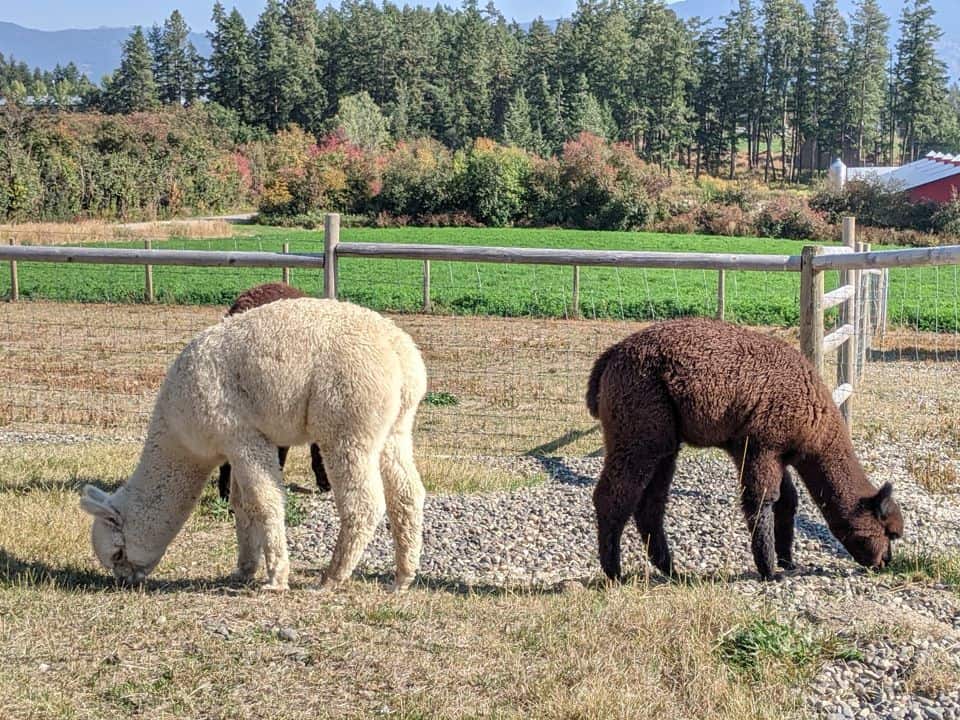
Photo Credit: Dave Keeping
Processing Fibre for Quality End Products
Fleece quality variation is a primary factor when processing alpaca fibre into end products.
Uniformity of fibre quality and product consistency are the keys to a successful fibre industry.
Best-use shearing practice, thorough skirting and proper sorting of fleeces at harvest time guarantees uniform quality fibre and provides consistency for the processor.
Fleece growing on an alpaca differs in areas in micron (fineness), staple length and colour.
Stains, heavy vegetation and guard hair as well as very coarse fibre (lower leg, belly) add to the make up of fleeces. Skirting away stains, most of the vegetation and other debris deliver a cleaner fleece for more cost effective processing. Separating the differing sections of fleece according to their attributes avoids spoiling the better parts which carries forward to the end product.
Desirable characteristics for alpaca fibre are:
- Fineness
- Colour
- Quantity
- Tensile strength
- Absence of Guard Hair
- Uniformity in fineness and length
- Staple length
- Cleanliness
- Crimp/Brightness
Sorting the fleece sections according to fineness, length colour and degree of guard hair achieves uniformity in fineness and staple length, desirable absence of guard hair and consistency in colour for maximum benefit. Meeting these criteria should be the goal of the producer. Deviations in micron (i.e. more than 3) and in length (more than 2") can cause major spinning problems for the processor. Excessive short fibres and second cuts create noils, which will decrease the quality and quantity of the yarn. Guard hair is a major source of the "prickle factor", tends to shed and doesn't dye well.
Processors should receive clean, uniform lines of fibre (fineness, length) with good tensile strength and in as large batches as possible for cost effective processing into quality yarn.
Canadian alpaca breeders benefit from the services of many custom fibre mills across the country.
Custom mills offer various services and may have differing requirements to process alpaca fibre. Contacting the mills and asking questions avoids disappointment and offers some assurance you will get what you envisioned or expected. Some points you may want to find out are:
- Ask what maximum/minimum length the mill is accepting.
- Ask if the mill has de-hairing equipment and what it costs to have fleeces de-haired.
- Ask if waste fibre is sent back (may be useful for felting)
- Ask if the mill has sample cards of the yarns they produce.
- Try and get references from other producers.
- Ask for a price list.
- Ask whether the mill offers felting and at what cost.
- If you are considering an alpaca blend yarn, ask if the mill supplies the fibre to blend with your alpaca, i.e. wool (could be Merino, Polworth, Romney, etc.) mohair, silk, etc., the price and the percentage the mill can add to your alpaca.
- Consider combining similar coloured fleeces such as white, beige, fawn, length of fibre, and grade of fibre. The larger the lot that the mill has to work with the more products you will end up with. If you have a large amount of fibre to be processed, ask if the mill has volume discounts.
- If possible visit the mill and discuss the possibilities for your fibre, taking into account the mill's capabilities. The mill may have some suggestions and samples of yarns that would work well for the fibre you want processed.
- Take or send samples of various yarns to the mill to show your ideas. These samples don't have to be alpaca yarns. It might be a yarn that you saw in a yarn shop that you would like your alpaca fibre made into. Finished garments are also good examples for your mill so they understand how you see your yarn as a 'finished garment'.
- Ask whether the mill is processing Suri fibre, if applicable to your business.
- Determine if your yarn will be returned to you in skeins or on cones. Let the mill know which you prefer and the amount that you want in each skein - the norm is 50 or 100 grams per skein and cones can be kilo or half-kilo cones.
- Ask the mill to record the yardage (YPP - yards per pound) or meterage (meters per 50 or 100 grams). These measurements are most familiar to artisans that will work with your yarn.
- Ask for an estimate of turn around time from receipt of your fibre to delivery of your product.
